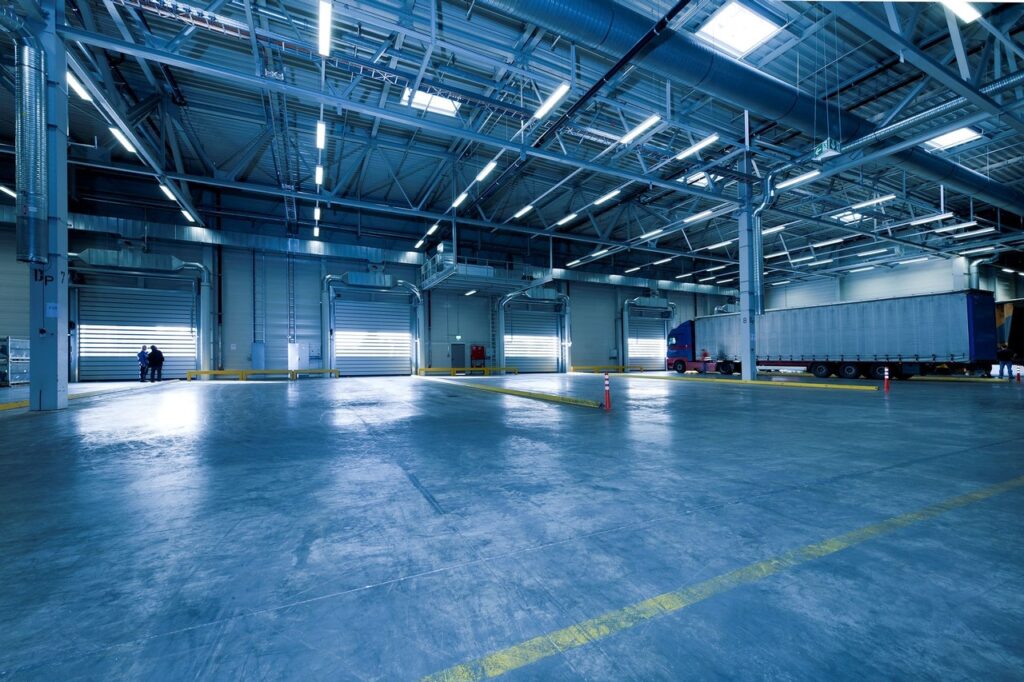What is Industrial Engineering?
Industrial engineering is an engineering profession that is concerned with the optimization of complex systems, processes, or organizations by developing, improving and implementing integrated systems of money, people, information, knowledge, equipment, energy and materials. The focus of industrial engineering is how to improve processes or design things that are more efficient and waste less money, time, raw resources, man-power and energy while following safety standards and regulations.
Industrial engineers are concerned with increasing efficiency, reducing production costs, improving the quality of products and services, ensuring worker health and safety, protecting the environment and complying with government regulations.

They “work to eliminate waste of time, money, materials, energy and other commodities,” according to the Institute of Industrial Engineers. For example, industrial engineers may work to shorten a roller-coaster line, streamline an operating room, make assembly lines safer and more efficient, and speed up the delivery of goods. As you can imagine, there’s a great need for capable industrial engineers in the world!
History of Industrial Engineering
There is a general consensus among historians that the roots of the industrial engineering profession date back to the Industrial Revolution. The technologies that helped mechanize traditional manual operations in the textile industry including the flying shuttle, the spinning jenny, and perhaps most importantly the steam engine generated economies of scale that made mass production in centralized locations attractive for the first time. The concept of the production system had its genesis in the factories created by these innovations.
Industrial engineering originated with the studies of the Gilbreths, Taylor, and other pioneers of mass production methods. Their work expanded into responsibilities that now include the development of work methods to increase efficiency and eliminate worker fatigue; the redesign and standardization of manufacturing processes and methods for handling and transporting materials; the development of production planning and control procedures; and the determination and maintenance of output standards for workers and machines. Today the field is characterized by an emphasis on mathematical and computer modeling.
In recent years industrial engineering has broadened significantly as a discipline, and the support it now provides to production and manufacturing managers comes from staff specialists drawn not only from the field of industrial engineering but also from operations research, management science, computer science, and information systems. In the 1970s and 1980s industrial engineering became a more quantitative and computer-based profession, and operations research techniques were adopted as the core of most industrial engineering academic curricula in both the United States and Europe.
Industrial Engineering Education
While it is possible to find a job in industrial engineering with a two-year associate’s degree, a bachelor’s degree is typically the minimum educational requirement for starting a career as an industrial engineer. Industrial engineers need a bachelor’s degree, typically in industrial engineering. However, many industrial engineers have degrees in mechanical engineering, electrical engineering, manufacturing engineering, industrial engineering technology, or general engineering. Students interested in studying industrial engineering should take high school courses in mathematics, such as algebra, trigonometry, and calculus; computer science; and sciences such as chemistry and physics.

A bachelor’s degree in general engineering or industrial engineering allows students to learn the techniques that are in high demand by companies interested in improving their manufacturing or production processes. Industrial engineering students learn about production optimization, materials management, lean manufacturing, and manufacturing technology. Upon successful completion of such a program, students earn a Bachelor of Science in General Engineering or a Bachelor of Science in Industrial Engineering.
Most industrial engineers find that graduate-level studies enhance their abilities. A master’s degree in industrial engineering allows engineers to build upon previous knowledge and gain field-specific skills, especially if they had studied general engineering at the undergraduate level. Topics covered in a master’s program typically include economics of production, business efficiency, corporate design, and management control systems. Graduates of such a program would earn a Master of Science in Industrial Engineering.
Industrial engineers interested in learning more about their field or considering a role in the academic world may pursue a doctorate degree. Students study many of the same subjects covered in undergraduate and graduate-level degree programs; however, doctoral courses tend to be more challenging and go into greater depth. This course of study results in a Ph.D. in Industrial Engineering.
Industrial Engineering Careers
Jobs
Industrial engineering is a thriving industry in the modern American economy. Employment of industrial engineers is projected to grow 8 percent from 2018 to 2028, faster than the average for all occupations, according to the BLS. Firms in a variety of industries will continue to seek new ways to contain costs and improve efficiency. Certain related occupations should experience even more rapid expansion. For example, the BLS projects that demand for management analysts, a career path that requires similar skills in production and systems analysis, will increase by 14% during that same period.
Industrial engineering can entail a wide variety of things, so it is difficult to pinpoint exactly what to expect on the job. Here are some examples that will give you an idea of how varied this profession can be:
- Healthcare Management Engineer
- Lean Coordinator
- Project Managers
- Quality Assurance Engineer
- Supply Chain Solutions Engineer
- Theme Park Industrial Engineer

Salaries
An entry-level industrial engineer with less than 1 year experience can expect to earn an average total compensation (includes tips, bonus, and overtime pay) of $60,695. An early career industrial engineer with 1-4 years of experience earns an average total compensation of $65,566. A mid-career industrial engineer with 5-9 years of experience earns an average total compensation of $77,444. An experienced industrial engineer with 10-19 years of experience earns an average total compensation of $84,251. In their late career (20 years and higher), employees earn an average total compensation of $88,295, according to PayScale.com.
The top responding companies for the job title industrial engineer are The Boeing Company, United Parcel Service (UPS), Inc. and U.S. Postal Service (USPS). Reported salaries are highest at Northrop Grumman Corporation where the average pay is $76,557. Other companies that offer high salaries for this role include The Boeing Company and U.S. Postal Service (USPS), earning around $71,830 and $71,757, respectively. United Parcel Service (UPS), Inc. pays the lowest at around $64,640. Lockheed Martin Corp and Federal Express Corporation (FedEx) also pay on the lower end of the scale, paying $65,703 and $69,594, respectively.
What Do Industrial Engineers Do?
Industrial engineers use principles of technology and engineering to eliminate wasteful and inefficient processes in a production environment. They focus on reducing costs, promoting safety, utilizing efficient materials, and saving time and energy. They’re responsible for analyzing processes, determining areas of improvement, communicating effectively, creating documentation, and implementing training for new procedures.
Responsibilities
Job responsibilities of an industrial engineer include:
- Collaborate with cross-functional teams to gain insight and direction
- Create and maintain required manufacturing process documentation, including process flow charts, capacity and utilization studies, time and motion studies, standard work, cycle time analysis and line balancing
- Develop and design robust manufacturing concepts to simplify/improve manufacturing processes to ensure best practice, performing structural and thermal analyses of components and assemblies, building prototypes, evaluating performance, identifying issues, and make improvements
- Identify opportunities to prevent waste and inefficiency in production
- Research and test design ideas to determine feasibility, utilizing Lean Manufacturing, Kaizen, Six Sigma, and root cause analysis to formulate/support innovation, corrective actions, and continuous improvement activities
- Utilize principles of mathematics, science, and engineering to streamline processes

Skills
Successful industrial engineers must possess the ability to communicate effectively, for without it you cannot sell your ideas. You must be able to manage projects and multiple tasks, for without those skills you will be less efficient and of less use to your employer. You must be able to observe others and understand why they are doing what they do, because without that, change is an uphill battle.
The required skills for an industrial engineer are:
- Advanced knowledge of production machinery, processes, and standards
- Critical thinking and problem-solving skills
- Documentation and organization skills
- Proficiency in MS Office and AutoCAD
- Strong communication and presentation skills
- Troubleshooting skills and attention to detail
Future of Industrial Engineering
Industrial engineering has evolved over the years and has continuously changed to reflect the needs and meet the challenges of our society. As the work world continues to change, with more automation and greater emphasis on the integration of computer systems and networks; the role of industrial engineers has adapted accordingly. The industrial engineer should deliver interdisciplinary programs and should participate in shaping the design, requirements and implementation of computer information systems with other engineering departments. This can be effectively achieved through an interdisciplinary approach. It is also important to point out the limitations of manufacturing systems research. Most of the equipment necessary for high-technology development in manufacturing systems is very expensive.

The future of industrial engineering is also linked to the future of American manufacturing. Manufacturing is affected by tariffs, employment levels, inflation, advertising, demand, public perception, inventory levels, seasonality of the product—the list is endless. Computers make the job more efficient, and will continue to do so in the future, but the fate of the industrial engineer is tied to these unpredictable factors. Industrial engineers will continue to be in demand, but their numbers are expected to increase only as fast as manufacturing in the United States increases.
If you have anything to add, please feel free to leave a comment down below, and sign up to our newsletter for more of the same content!



